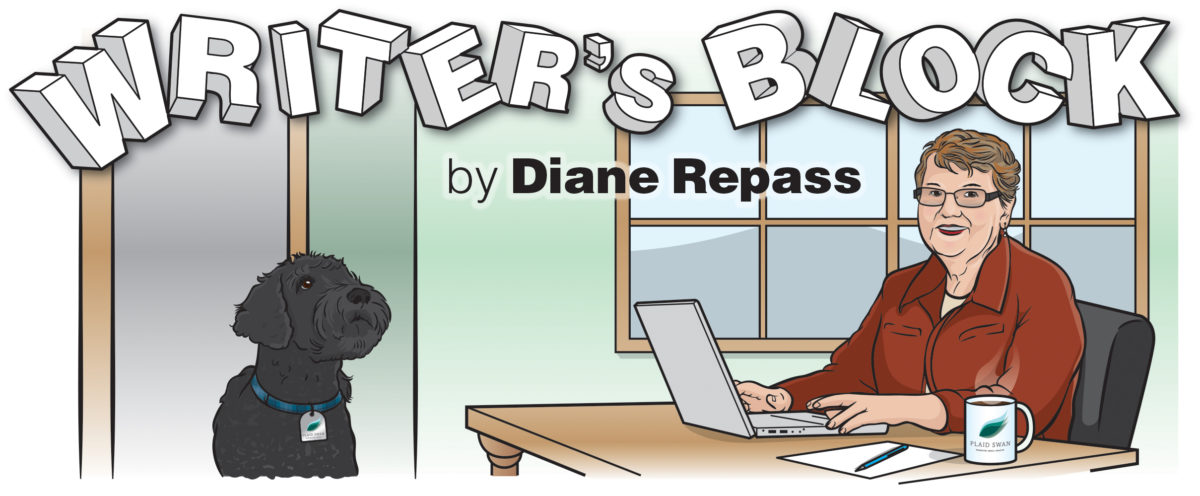Choose Your Words Carefully
George W. Bush once said that “We cannot let terrorists and rogue nations hold this nation hostile or hold our allies hostile,” meaning, of course, to say hostage rather than hostile. You hear people say, “could of/should of/would of;” not only is the phrase overused, but it is incorrect since of should be replaced in each case with have. Using words correctly; avoiding lofty language, jargon, and clichés; and choosing precise words should be a primary focus for writers.
Errors in word choice are common. George W. Bush was guilty of using a malapropism, an unintentional and often humorous misuse of a word. Many comedians like Stan Laurel (of Laurel and Hardy fame) or characters like Archie Bunker made careers of using hilarious malapropisms, but serious writers avoid such mistakes. There are many lists of confusing word pairs on the internet, such as affect/effect, between/among, and except/accept. One of my favorites is nauseous/nauseated. When people say that they are nauseous, that means that they are causing everyone around them to feel sick, not exactly a self-compliment. What they should say is that they are nauseated or about to be sick. Another common error is the misuse of pronouns, either in agreement or unclear antecedents. An antecedent is the word or words to which a pronoun refers. For example, in the sentence “The zombies attacked their Franken Berry breakfast cereal,” zombies is the antecedent of the pronoun their. If the antecedent is plural, then the pronoun must be plural. Sometimes the antecedent is not clear, such as in “the thief handed the police officer his gun.” Whose gun is it – the thief’s or the officer’s? Other grammatical errors include using an adjective where an adverb should be used, e.g., You did the job well (not good), or using an incorrect form of a verb, e.g., I have to lie down (not lay).
People sometimes choose to use words that are unfamiliar to their audience, or they use words and phrases that have become clichés. It is always important to consider the audience for whom you are writing. Choosing language that is appropriate for the audience and your purpose means that you avoid jargon and technical terms unless you are writing to an audience of your peers. Such language is found in sports, in academics, in business, and in science, to mention only a few. When I read, I welcome the challenge of a few new words, but when I stumble over too many words that I don’t know, it becomes annoying. My husband is an intelligent reader, but when I have him read my work, he will always call me on unfamiliar words, which I then change or define. It is a good idea to remove overworked words and phrases that have become clichés. Such phrases as “pushing the envelope,” “bang for your buck,” “chief cook and bottle washer” are a little tiresome, and a motivated writer will try to find fresh, new ways to express similar ideas.
A conscientious writer will choose to use precise and strong words. He/she will consider connotations, a meaning for a word that is implied or associated with the word; for example, baby may connote warmth, happiness, and responsibility. This careful writer avoids being wordy (e.g., using if instead of in the event that or using last instead of last but not least). Language choice should be memorable; if readers take away a thought or phrase that is particularly meaningful for them, it is a success for the writer. Avoiding overused and obsolete words such as naught or many words found in Shakespeare’s plays leads to a stronger connection to readers. Last, strong words make meanings more vivid and memorable. For example, saying that “I was sprinting” is much clearer than saying “I was running,” or “The man drove away in the car” is weaker than saying “The elated young man swiftly drove away in his shiny new car.” (Teaching That Makes Sense)
How can you improve word choice? Using a thesaurus may help to select the exact words needed to express a thought, but the use of a thesaurus should be used with caution. Suggested words may have unintended connotations, or they may have a slightly different meaning making it worthwhile to check the dictionary before inserting new words into your writing. Asking someone to read your work may point out areas of confusion, or you could read your work out loud either by yourself or with a listener, which might help to highlight any problem areas. Read your paper maintaining the viewpoint of the intended audience. There are helpful programs that review your work, note errors and suggest changes, such as www.grammarly.com. With care and attention to detail, you can avoid mistakes, choose appropriate words for your audience, and use specific and strong words to make your writing clear and compelling.

Diane Repass is a retired tenured assistant professor
from The University of Dubuque and now a beloved
writer for Plaid Swan Inc. She received her M.A. from
The University of Northern Iowa in Cedar Falls, Iowa.

